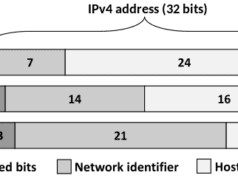Understanding why cybersecurity is important is the first step to protecting your online data. Digital security is about more than just protecting your computer from viruses and malware. It’s about protecting your personal information, whether you’re a business or an individual. This blog post will discuss 12 easy tips for improving your cybersecurity posture.
Why is cybersecurity important?
Cybersecurity is important for several reasons. First and foremost, it protects your data. In the event of a cyberattack, your personal information could be compromised. This includes your name, address, social security number, and financial information. Secondly, cybersecurity protects your devices from being hacked. If your computer or smartphone is hacked, attackers could gain access to your personal data and use it for their own gain. Finally, cybersecurity helps to protect the overall security of the internet. By securing your data and devices, you’re doing your part to keep the internet safe for everyone.
What are some easy tips for improving my cybersecurity posture?
Vary your passwords
One of the simplest things you can do to improve your cybersecurity is to vary your passwords. Using the same password for all of your accounts makes it easy for attackers to gain access to your data. Use a different password for each of your accounts, and make sure to use a mix of letters, numbers, and special characters.
Use a Password Manager
A password manager is a software application that helps you manage your passwords. Password managers can generate strong passwords, store them securely, and autofill them when needed. This makes it easy to use strong, unique passwords for all of your accounts without having to remember them all.
Enable Two-Factor Authentication
Two-factor authentication (also known as two-step verification) is an additional layer of security that can be used to protect your accounts. With two-factor authentication enabled, you’ll need to enter both your password and a code sent to your phone to log in. This makes it much more difficult for attackers to access your account, even if they have your password.
Update your software
Staying up-to-date on the latest software updates is crucial for keeping your devices secure. Software updates often include security patches that help to protect against new threats.
Install security software
Installing security software on your devices is a great way to protect against viruses and malware. Be sure to install an antivirus program on your computer, and consider installing a mobile security app on your smartphone.
Backup your data
Backing up your data regularly helps to ensure that you can recover from a cyberattack. Store backups of important files in the cloud or on an external hard drive.

Be cautious of links and attachments
Links and attachments in emails, texts, and social media messages can be malicious. If you’re not expecting a link or attachment from someone, don’t click it. And if you are expecting it, make sure to verify that the link or attachment is legitimate before clicking.
Don’t share too much on social media
Sharing too much information on social media can give attackers the information they need to gain access to your accounts. Be cautious about what you post, and consider making your profile private.
Limit who has access to your devices
Only allow trusted individuals to have access to your devices. If possible, limit physical access to your computer and use a password-protected screen lock on your smartphone.
Avoid using debit cards online
Debit cards are linked directly to your bank account. This makes them a prime target for attackers. If possible, avoid using debit cards online and opt for credit cards or PayPal instead.
Monitor your accounts
Regularly monitoring your accounts helps ensure that you quickly catch any suspicious activity. Check your bank and credit card statements regularly, and set up alerts for unusual activity.
Avoid Unknown Sites
When browsing the web, stick to websites that you know and trust. Avoid clicking on links from unknown or untrustworthy sources. If you’re unsure about a website, do some research before visiting it.
Conclusion
These are just a few of the many things you can do to improve your cybersecurity posture. By taking these steps, you can help to protect yourself and your data from cyberattacks. As the threat landscape continues to evolve, it’s important to stay up-to-date on the latest security threats and tips. Cybersecurity is an ongoing process, but following these tips can help you get started. Thanks for reading!
Featured Photo by Pixabay: https://www.pexels.com




